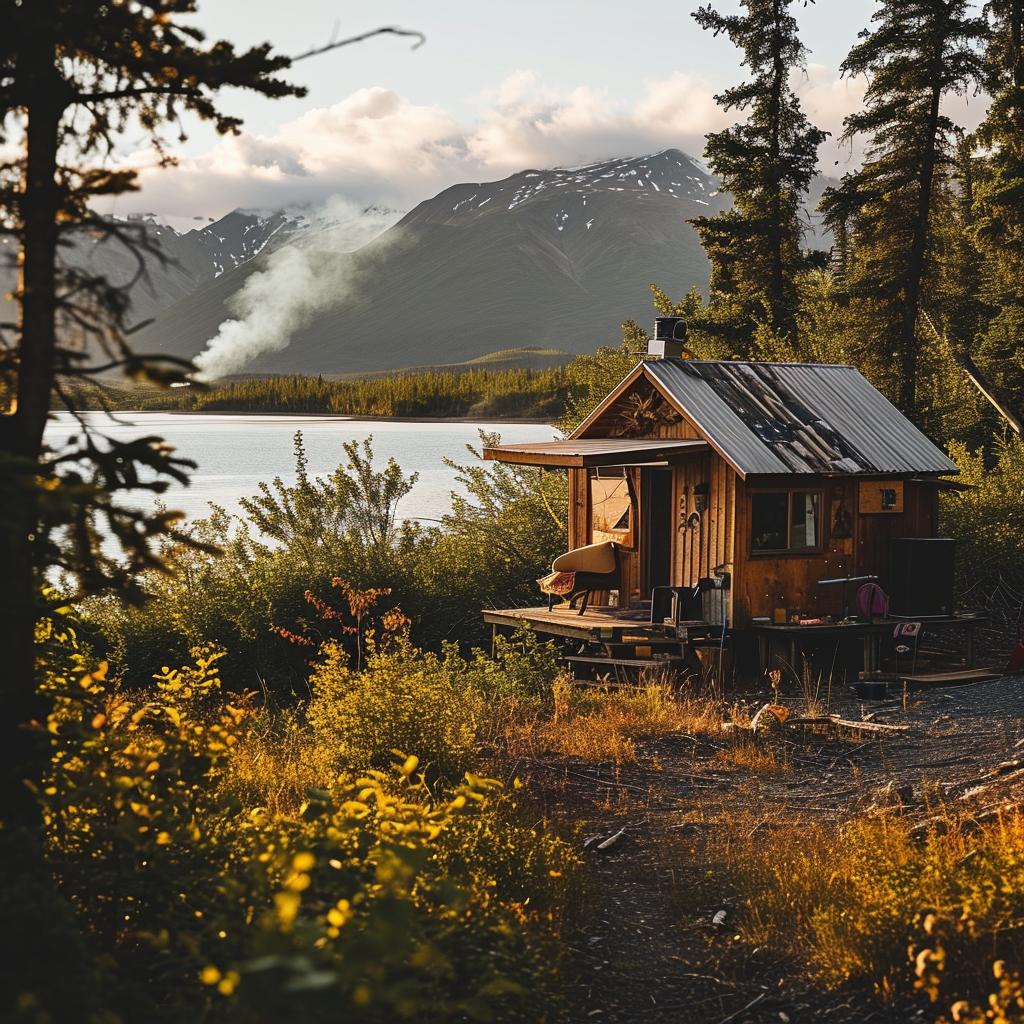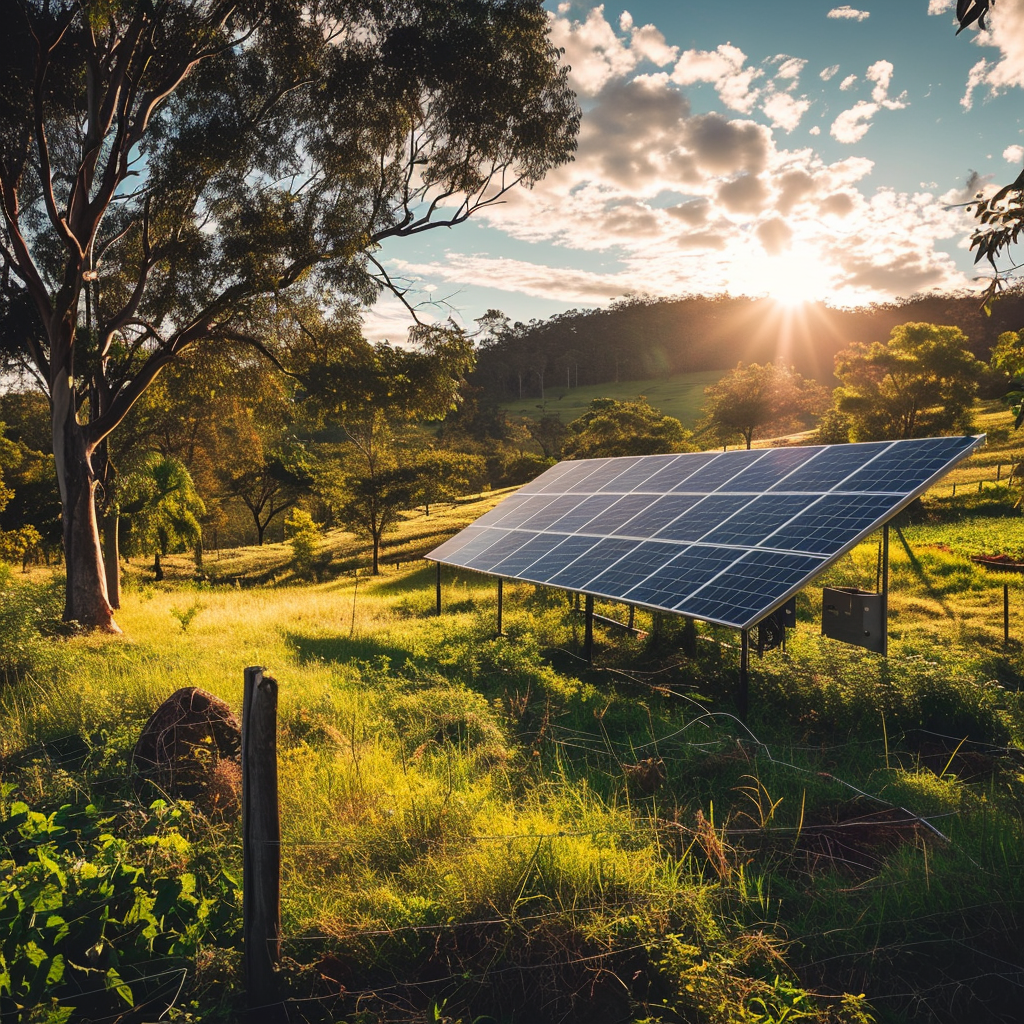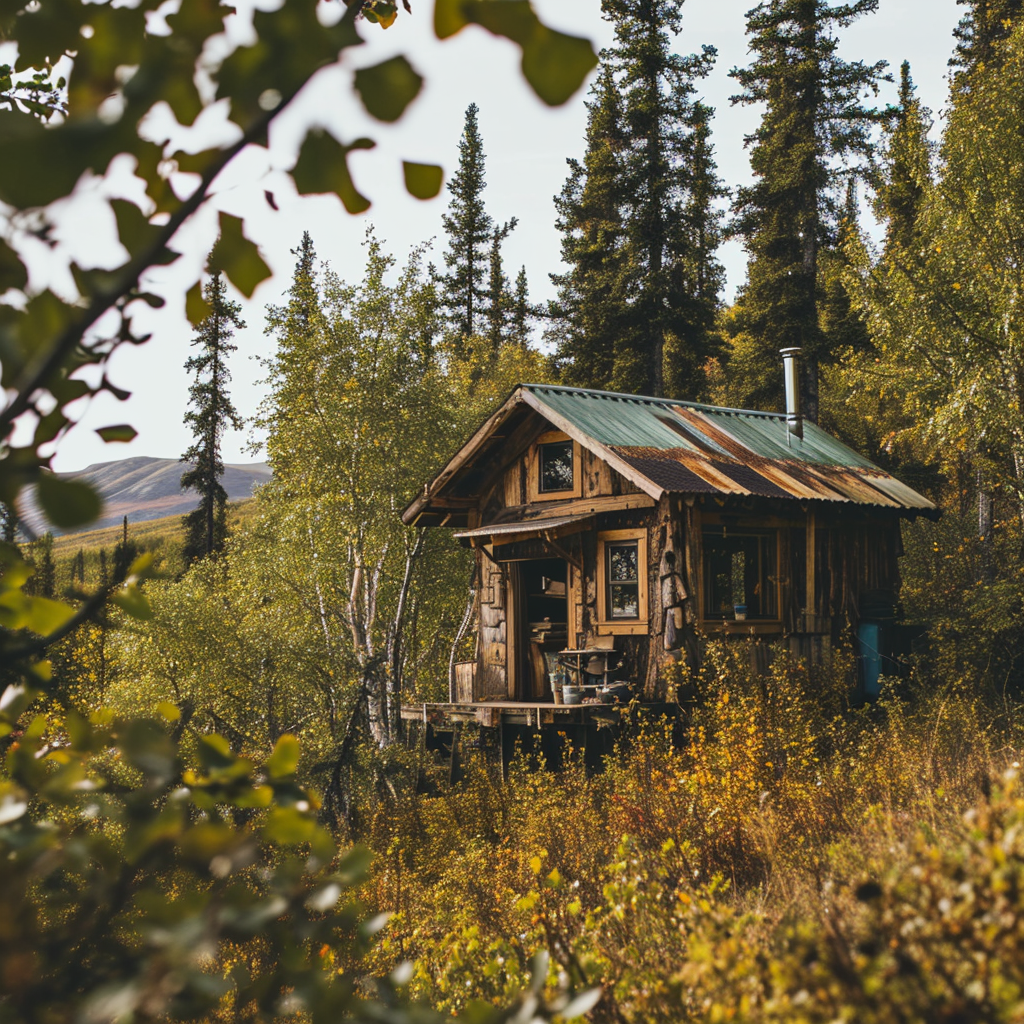Introduction
This article “Is It Legal to Be Off the Grid in Alaska?” provides an in-depth look at the exciting possibility of off-grid living in ‘The Last Frontier’. Alaska, with its vast wilderness and sparse population, has always been a magnet for those seeking a more organic, self-sufficient lifestyle. This article delves into the specifics of Alaskan off-grid living, covering everything from zoning laws and building codes to the nuances of homesteading in this rugged landscape. Whether you’re envisioning a life amidst imposing glaciers and expansive forests or planning to carve out your piece of wilderness, we guide you through the legalities and practicalities of making your off-grid dream a reality in Alaska.
A Comprehensive Guide to Embracing Wilderness in The Last Frontier
Picture yourself amidst the pristine, rugged beauty of Alaska – the imposing glaciers, the expansive forests, the stunning array of wildlife – a truly idyllic setting that beckons you to live a life off the grid. But wait, is it even legal to go off-grid in Alaska? Yes, indeed it is, with a few caveats you should know about. In this article, we delve into the labyrinth of rules and regulations that govern off-grid living in The Last Frontier.
Alaska, also known as ‘The Last Frontier,’ has always held an irresistible allure for those seeking a more organic and self-sufficient lifestyle. Its vast wilderness and sparse population make it an appealing destination for individuals yearning for a sense of autonomy and connection to nature.
Zoning Laws & Building Codes: Navigating the Labyrinth
Living off the grid in Alaska is perfectly legal. However, like any other state, it has a set of rules and regulations that must be adhered to. One size does not fit all when it comes to going off-grid, and thus, one must conform to the local zoning requirements and building codes.
Freedom is never absolute, and off-grid living is no exception. Compliance with local zoning laws and building codes is imperative for a harmonious existence with Mother Nature.”
For instance, off-grid solar is a widely accepted mode of energy in Alaska, but wind energy comes with its own set of zoning laws. The zoning requirements specific to off-grid living in Alaska also encompass restrictions on the number and weight of animals that can be owned.
An intriguing aspect of Alaskan off-grid living is the lack of specific permits required. Unlike many other states where a plethora of permits may be needed to embark on an off-grid journey, Alaska stands out as being more lax. However, this should not be mistaken as an invitation to ignore local laws.

The Building Permit: Your Ticket to Off-Grid Living
To kickstart your off-grid living, you’ll need to acquire a building permit. This involves filling out an application and submitting it, along with a meticulously planned blueprint of your off-grid setup, to your local zoning board for review. The timeline for obtaining this permit is not fixed and depends heavily on the specifics of your project and the efficiency of your local zoning board’s review process.
As an aspiring off-gridder, it’s crucial to approach this process with patience and thoroughness. Keep in mind that every step taken, every document filed brings you closer to your dream of a self-sustaining, environmentally conscious life.
Homesteading in Alaska: Carving Out Your Own Piece of Wilderness
In case your off-grid dreams extend beyond a secluded cabin in the woods, and you are keen on truly making Alaska your home, homesteading might be right up your alley. While the federal Homestead Act of 1862 is no longer in effect, there are still opportunities for homesteading in Alaska, provided you meet certain criteria.
“The great American dream of carving out your own piece of land isn’t completely lost. With a sprinkling of grit and a good measure of determination, you can still stake a claim in the Alaskan wilderness.”
Firstly, to be eligible for homesteading in Alaska, you need to be a U.S. citizen. This is a non-negotiable requirement, along with the stipulation that you must have been an Alaskan resident for at least a year prior to filing for homesteading.
Once you’ve passed the eligibility test, you can then venture into the real challenge – selecting your land, clearing it, building your home, and making improvements. The landscape of Alaska is as varied as it is vast, offering a myriad of possibilities for your homestead, from the coastal rainforests of the Southeast to the tundra-covered plains of the North.

Going Off the Grid: Not a Leap, But a Series of Steps
Living off the grid in Alaska isn’t about taking a single gigantic leap; rather, it’s about taking a series of deliberate, well-planned steps. By complying with the necessary legalities, you can ensure that your dream of off-grid living doesn’t end up becoming a nightmare tangled in red tape.
So, it’s essential to embrace patience, do your due diligence, and stay mindful of the balance between independence and compliance. Remember, the key to successful off-grid living lies not just in your ability to live self-sufficiently, but also in coexisting harmoniously within the rules laid down by the law.
“Going off the grid in Alaska is akin to weaving a beautiful tapestry – it requires time, patience, and above all, an unwavering commitment to living in sync with nature.”
Building Codes and Zoning Requirements: Navigating the Path to Off-Grid Living
When you choose to embark on an off-grid lifestyle in Alaska, adhering to the local building codes and zoning requirements becomes an essential part of your journey. Although there’s a sense of liberty attached to off-grid living, it’s not a free pass to bypass the laws that govern construction and land use in the area.
“Building codes and zoning laws may initially seem like a hindrance, but they exist to ensure safety and orderliness, and even the most passionate off-gridders must respect these regulations.”
The process to obtain a building permit may differ across regions and is subject to the particularities of your project. Typically, it involves filling an application and submitting it, along with a comprehensive plan of your proposed dwelling, to the local zoning board for review. While it’s possible that this process can be time-consuming, it’s a crucial step towards ensuring your off-grid dreams align with local regulations.
In the case of Alaska, regulations vary with the region and the specific aspects of off-grid living. For instance, while the use of solar power is broadly accepted, wind energy is subjected to specific zoning laws. Furthermore, there are limitations on the number and weight of animals you can own, which could be a significant consideration if you plan to live off the land.
Conclusion: The Last Frontier Beckons
Living off the grid in Alaska is more than possible – it’s a lifestyle choice that dozens of rugged individuals and families make every year. However, it’s not a journey to be embarked upon lightly. As well as the climatic challenges, the laws and regulations require careful consideration and respect.
Remember, living off-grid doesn’t mean living outside the law. Rather, it means living in harmony with nature and society’s structures, no matter how far removed from the hustle and bustle of the city you are.
“Alaska, the last frontier, with its raw, untamed beauty, is a dream for off-gridders. But remember to respect the law of the land as you embrace the call of the wild.”
With careful planning, patience, and a good understanding of the legalities involved, you can truly immerse yourself in the Alaskan wilderness and relish the off-grid lifestyle you’ve always dreamt of.

Frequently Asked Questions about Off-Grid Living in Alaska
1. Is it legal to live off the grid in Alaska?
Yes, it is legal to live off the grid in Alaska. However, it’s important to adhere to local zoning requirements, building codes, and other regulations to ensure your off-grid lifestyle aligns with the law.
2. Can I use any form of renewable energy for my off-grid home in Alaska?
While off-grid solar power is broadly allowed in Alaska, the use of wind energy is subject to specific zoning laws. Make sure to research your local area’s regulations on renewable energy sources before implementing them in your off-grid home.
3. Are there any specific restrictions for off-grid living in Alaska?
Yes, Alaska has specific zoning requirements for off-grid living, which includes restrictions on the number and weight of animals that can be owned. It is essential to understand and follow these regulations to avoid legal complications.
4. How can I legally build my off-grid home in Alaska?
To build your off-grid home legally, you’ll need to apply for a building permit. This process involves completing an application and submitting it, along with a detailed plan of your proposed dwelling, to your local zoning board for review.
5. Can I homestead in Alaska?
Yes, you can still homestead in Alaska, provided you meet certain criteria. You need to be a U.S. citizen and must have been an Alaskan resident for at least one year before filing for homesteading. However, it’s important to note that the process involves substantial effort and commitment.




